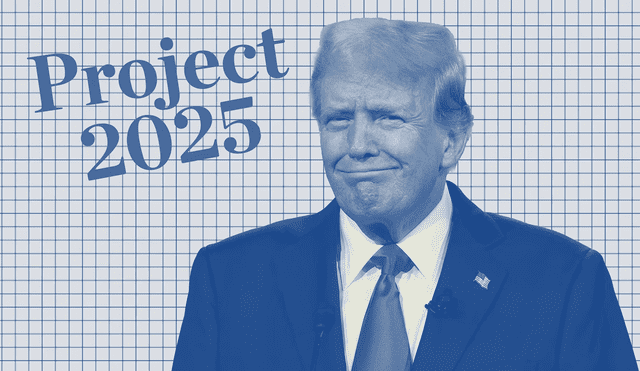Bad news for immigrants in the U.S.: 5 Programs Donald Trump May Eliminate to Deport Undocumented Immigrants
In a controversial move, Donald Trump aims to eliminate five critical programs designed to protect undocumented immigrants in the U.S. Discover which programs are at risk and how this could impact immigrant communities across the nation.

Donald Trump’s proposed immigration policies could bring major changes to the lives of undocumented immigrants in the United States. As part of his Project 2025 agenda, Trump has outlined plans to eliminate key programs that currently provide legal protection and stability for hundreds of thousands of immigrants. If these policies go into effect, many individuals who have lived and worked in the U.S. for years could lose their legal status and face deportation.
Among the most significant proposals are the elimination of DACA, TPS, Humanitarian Parole, and the Family Reunification Program, as well as the revocation of birthright citizenship. These measures would not only impact immigrants but also disrupt communities and industries that rely on immigrant labor. With millions of lives at stake, understanding the potential consequences of these changes is more critical than ever.
Which 5 immigration programs could Trump eliminate?
With Donald Trump's return to the White House, several critical immigration programs may be dismantled, leaving undocumented immigrants and those with temporary status unprotected. According to "El País", here are the five programs at risk:
- Birthright Citizenship – Trump has signed an executive order aiming to end birthright citizenship, which would affect children born in the U.S. to undocumented parents. This drastic change would reshape the nation’s immigration system and jeopardize the legal status of future generations.
- Humanitarian Parole – This program allows migrants from Venezuela, Haiti, Nicaragua, and Cuba to enter the U.S. under specific conditions, such as securing a sponsor and passing background checks. Trump has signed an executive order to eliminate this protection, potentially impacting over 530,000 individuals seeking safety and stability in the U.S.
- Temporary Protected Status (TPS) – TPS offers protection to immigrants from countries affected by natural disasters or humanitarian crises, such as El Salvador, Honduras, and Haiti. Currently, around 330,000 individuals rely on TPS to remain in the U.S. Trump has already revoked this status for Venezuelan immigrants and may extend these cuts further.
- Family Reunification Program – This initiative helps immigrants bring family members to the U.S. by granting visas and allowing for legal status adjustments. Its removal would complicate the immigration process for thousands who depend on it to secure lawful residency.
- Deferred Action for Childhood Arrivals (DACA) – DACA protects "Dreamers," undocumented immigrants who arrived in the U.S. as children, providing them with work permits and temporary residency. During his previous term, Trump attempted to end the program, but the Supreme Court blocked its cancellation.

ALSO SEE: Last Chance! Download Your Kindle eBooks Before Amazon Limits Access - What You Need to Know
What would the elimination of these programs mean for immigrants?
If Trump follows through with his proposals, removing these five programs would have devastating consequences for the immigrant community. Many TPS, DACA, and Humanitarian Parole recipients have built their lives in the U.S., securing jobs, starting families, and contributing to their communities.
Mass deportations could displace entire families, while ending birthright citizenship would leave thousands of children without a clear legal status. Additionally, these policies could severely impact industries that rely on immigrant labor, further affecting the country’s economy.
What happens to immigrants deported from the U.S.?
The consequences of deportation vary depending on individual circumstances, but many face legal, financial, and emotional hardships upon returning to their home countries. Some may seek legal avenues to return to the U.S., while others may struggle to rebuild their lives in an unfamiliar or unstable environment. The long-term impact of these deportations could reshape immigrant communities across the nation.












